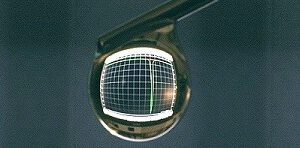Knowledge-based translation – what makes technical translations different
Technical texts are generally highly specialized and every expert community has its own „specialist language“ with a unique specialist terminology that also language experts must know and understand.
The texts can be written in clear and easy to understand language depending on the target group or intended purpose, but the style will always be scientifically clear and factual. It may be interesting to know that the scientific writing styles in English and German are not the same.
If you would like me to help you with your translation project, just give me a call or send me an e-mail!
Specializations and range of services
Rates and quality assurance
more
less
In general, exact rates cannot be given due to the complexity and variability of technical texts. However, it can be said that the rates per line or word for texts increase with complexity (challenging topic or creative texts). The rates furthermore depend on whether machine translation can be integrated or not.
It is therefore recommendable to send me your text in advance per e-mail or better as a download (for confidentiality reasons) which will serve as the basis for a cost estimate.
Translations in the language pair GER-EN are generally calculated per line of the source text (defined as 55 characters incl. spaces) and in the language pair EN-GER per word of the source text. If formatting is required, a rate per hour of 35.00 € is calculated. This is also the minimum charge for small volumes.
By standard, a quality assurance according to the four-eye principle is recommended for technical translations, especially when its publication is intended. This of course will include an extra cost. If you wish to have this additional service please feel free to ask.
Generally speaking: Short delivery deadlines increase the possibility of errors. This can be minimized by cross-checking; however, close deadlines may not leave time to get this done. That is why it is necessary to plan sufficient time for the translation. Please also send any terminology base with preferred terms and spellings if you have one. It will help a lot to ensure your company terminology is consistent.
I look forward to hearing from you!
Editing
English has meanwhile become the language of international communication, and for many, it is almost natural to be fluent in English. Yet, as you may have experienced yourself, English is easy when it is spoken but when it comes to writing, it can cause problems. Scientific texts, in particular, need to be written in accurate and non-misleading language that also reads fluently and is clearly understandable (important e.g. to peer-reviewers). This can take up a lot of time that you probably don’t have.
I will be happy to review your English text or paper before its publication in a scientific journal, academic presentation or on your website and ensure that the language is correct, fluently readable and clearly understandable.
The rates are calculated per hour or per word. For an exact cost estimate, please send me your text (if available, together with your German text).
Terminology management
‚Terminology‘ is the entirety of all concepts and terms in one specialist field (DIN 2342). A uniform and standardised company terminology not only provides clearness in communication within your company but is also the basis for consistent translations. ‚Terminology management‘ is the systematic collection, description, processing and presentation of concepts and their terms. It includes the generation of a standardized and documented company terminology base to ensure a clear and universal understanding and use of your technical terms. The creation of such a database is best accomplished together with selected employees of your company.
If you would like to know more about terminology management, please feel free to give me a call.
Tools
Work procedures and methods – the modern translation process
CAT tools (computer-aided/assisted translation) are software programs that contribute to higher productivity (advantages with repetitions, similar wording and templates) and when used together with termbases ensure consistent translations. These tools also have an integrated terminology function. The newest development is towards adaptive machine translation; tools that can be adapted to one’s specialist subject-areas and texts and that learn through corrections.
I work with SDL Studio 2017 and Across Translator Edition 6.3. Bilingual MemoQ files can be imported into Studio as exported RTF files. Other technical tools are available that facilitate internet searches for specialist terms.
This might interest you: The translation landscape has gone through a lot of change.
What started with scribbling pads, dictionaries and pens, later included typewriters, then computers and finally the internet.
Each new development brought an increase in productivity. With globalization, the need for translations has however grown enormously and can hardly be handled by humans alone within reasonable time frames. Research in machine translation is therefore receiving a lot of funding. However, it is still a long way to really good machine translations. As of today, it is suited for certain text types that have simple sentences and are about a general topic or do not require creativity.
The human translator is still important, yet the earlier job profile of a translator is outdated. Modern translators have to be technically savvy and understand and also use the many technical novelties to boost their productivity potential.
Other
Knowledge diversity requires flexibility and a willingness to learn
Given the vast range of specialist areas, each with their own huge knowledge base, constant further education is crucial for technical translators. Possible options include specialist seminars that provide specific knowledge in a new subject area or help to expand the existing knowledge in a current specialization. Workshops and conferences help to keep oneself up-to-date on new developments and to establish new contacts.
The BDÜ specially offers a wide and interesting range of options for further education.




